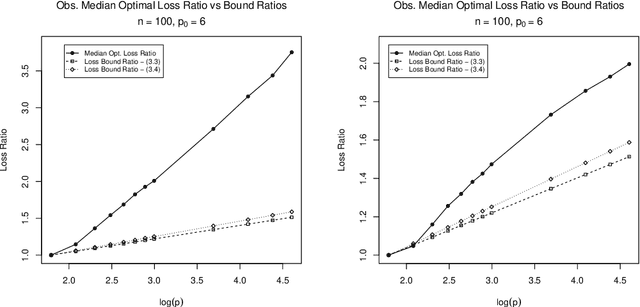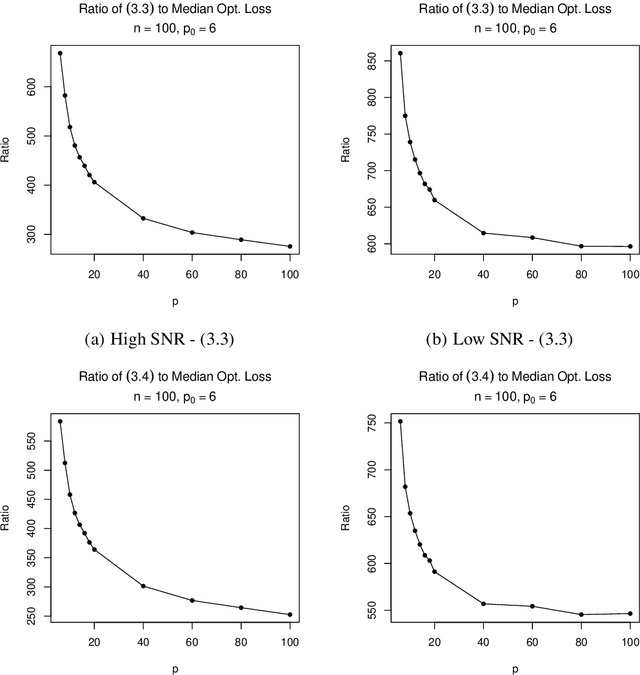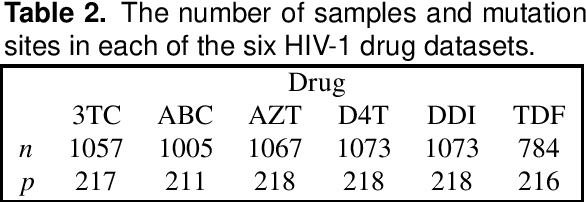On the Sensitivity of the Lasso to the Number of Predictor Variables
Paper and Code
May 27, 2016



The Lasso is a computationally efficient regression regularization procedure that can produce sparse estimators when the number of predictors (p) is large. Oracle inequalities provide probability loss bounds for the Lasso estimator at a deterministic choice of the regularization parameter. These bounds tend to zero if p is appropriately controlled, and are thus commonly cited as theoretical justification for the Lasso and its ability to handle high-dimensional settings. Unfortunately, in practice the regularization parameter is not selected to be a deterministic quantity, but is instead chosen using a random, data-dependent procedure. To address this shortcoming of previous theoretical work, we study the loss of the Lasso estimator when tuned optimally for prediction. Assuming orthonormal predictors and a sparse true model, we prove that the probability that the best possible predictive performance of the Lasso deteriorates as p increases is positive and can be arbitrarily close to one given a sufficiently high signal to noise ratio and sufficiently large p. We further demonstrate empirically that the amount of deterioration in performance can be far worse than the oracle inequalities suggest and provide a real data example where deterioration is observed.
 Add to Chrome
Add to Chrome Add to Firefox
Add to Firefox Add to Edge
Add to Edge